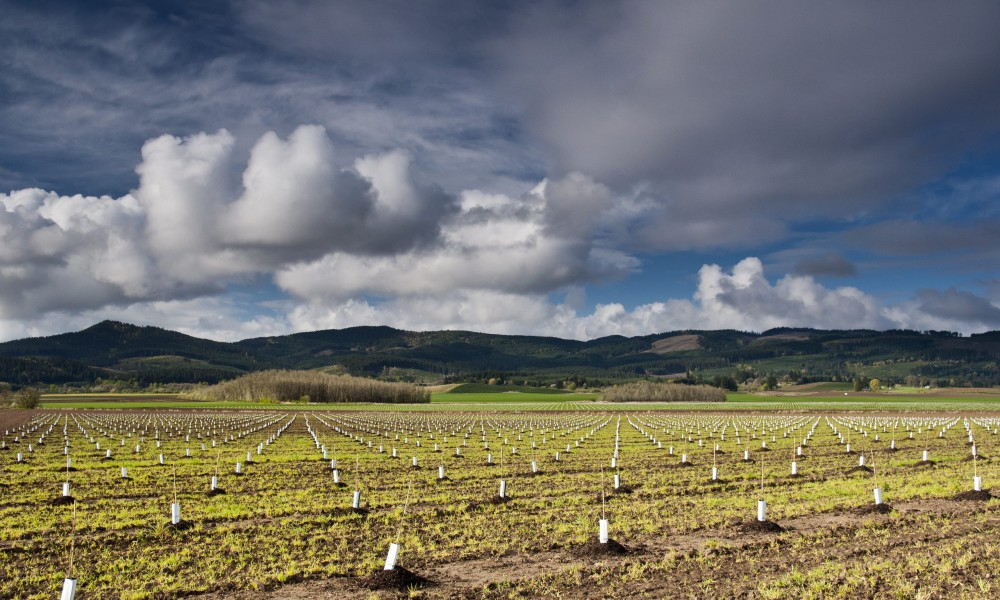Successful Country Living

Successful country living requires neighborly cooperation. Your practices can impact your neighbor’s property and their practices can impact you. Meet some of the locals to better understand the community character and dynamics.
Livestock
Benton County is entirely a livestock district, which means the livestock owner must keep livestock on their own property, there is no open range. Keeping livestock off of private and public property is the responsibility of the livestock owner, not the property owner. Moving livestock on country roads is often necessary. Be cautious and prepare for delays.
Weeds and Pests
Good management will prevent noxious weeds and pests from becoming established on your land or spreading between neighbors. If you are interested in growing the same crop as your neighbor, talk with them about their pest management strategy so that you can manage yours in an appropriate way.
Private Property
Always know whose land you are on and ask permission before entry. People who live in rural areas prize their privacy and their space.
Rural Practices
Any property in Benton County can have farming or timber activities, so even if there is no orchard or logging operation at present, there could be at any time in the future without any public notice. Research what types of activities will be occurring on neighboring properties because you are likely to be affected in some way. Some practices, such as running machinery after dark, are common farming activities at certain times of the year. Odors, noise, drift and dust are some examples of the realities of agricultural production that you may experience. Talk with local residents to find out about the common agricultural activities that occur in the area.
Domestic Animals
Dogs and cats must be under control and on your property at all times. Free roaming dogs are a threat to livestock and wildlife. Farmers and ranchers have the right to protect their livestock and in some cases may destroy animals that threaten their livestock. Dog owners whose dogs injure or kill livestock will be held financially responsible and such dogs may be euthanized. It is your responsibility to license your pets and vaccinate them against rabies. Your pet should have a collar and identification tags. For more information, review the Animal Control Chapter of the Benton County Code.
Fences
By working with your neighbors to maintain fences and property lines, there is an opportunity to improve cooperation and build relationships. Properly maintained fences are important for the protection of livestock and wildlife, which may become entangled, injured or killed. Cooperatively build and maintain boundary fences to keep livestock from trespassing. It should be the responsibility of each property owner sharing a fence to maintain part of the existing fence and/or share in the cost for constructing a new fence, if necessary. Keep in mind that fences often do not indicate property lines. Contact Benton County Planning Division before building a new fence, because restrictions may apply.
Right to Farm Law
ORS 30.930, the Right to Farm law, protects farmers from legal action brought by individuals, local governments, and special districts, which may be intended to limit the ability to farm or conduct forest practices. This protection covers all lands zoned Exclusive Farm Use (EFU) or forest use outside of the urban growth boundary. This law does not protect farmers and foresters from non-farmgenerated occurrences such as: increased traffic, vandalism, and litter. The following topics are protected by the right-to-farm law and should be considered prior to purchasing rural property.
Noise
Agricultural production can be fairly noisy at times. Farmers often work from the early hours of the morning to the late hours of the night, especially during the planting season (spring) and harvesting season (late summer). The timing of this work varies depending on the type of crop. The schedule and operation of agricultural practices are based on external factors like weather, so they often take place outside of normal work hours. Noise levels can vary greatly depending on the type of work being conducted.
Spray Drift
There is a chance that rural property owners may be affected by spray drift coming from other properties. Pesticides are normally applied from the spring to the fall, with the heaviest application occurring during the spring. Spray has the ability to travel by wind drift or volatilization. In either case, when the chemical becomes airborne it may be able to travel long distances. Spray drift can be minimized by following the label and consulting with a certified applicator.
Dust and Pollen
Depending on the types of crop that are being grown and the land management practices of neighbors, there can be times when air quality is low. Tillage can create large clouds of dust that can travel long distances. Wind erosion from bare fields can also cause dust. High wind events are more frequent in rural areas because of the lack of natural windbreaks. Pollen levels can also become extremely high in rural areas because of the concentration of pollen-producing crops grown in Benton County. Crops, like grass seed and trees, that are grown on a large scale will produce pollen at a level that can cause irritation or allergic reactions in sensitive individuals.
Smoke and Odors
Smoke is caused by the burning of yard debris, cardboard and residual crop vegetation and is a common occurrence in rural Benton County. It is a legal and common practice for rural property owners to burn piles of vegetation that create large clouds of malodorous smoke. Animal operations and field applications of manure can produce undesirable odors.

